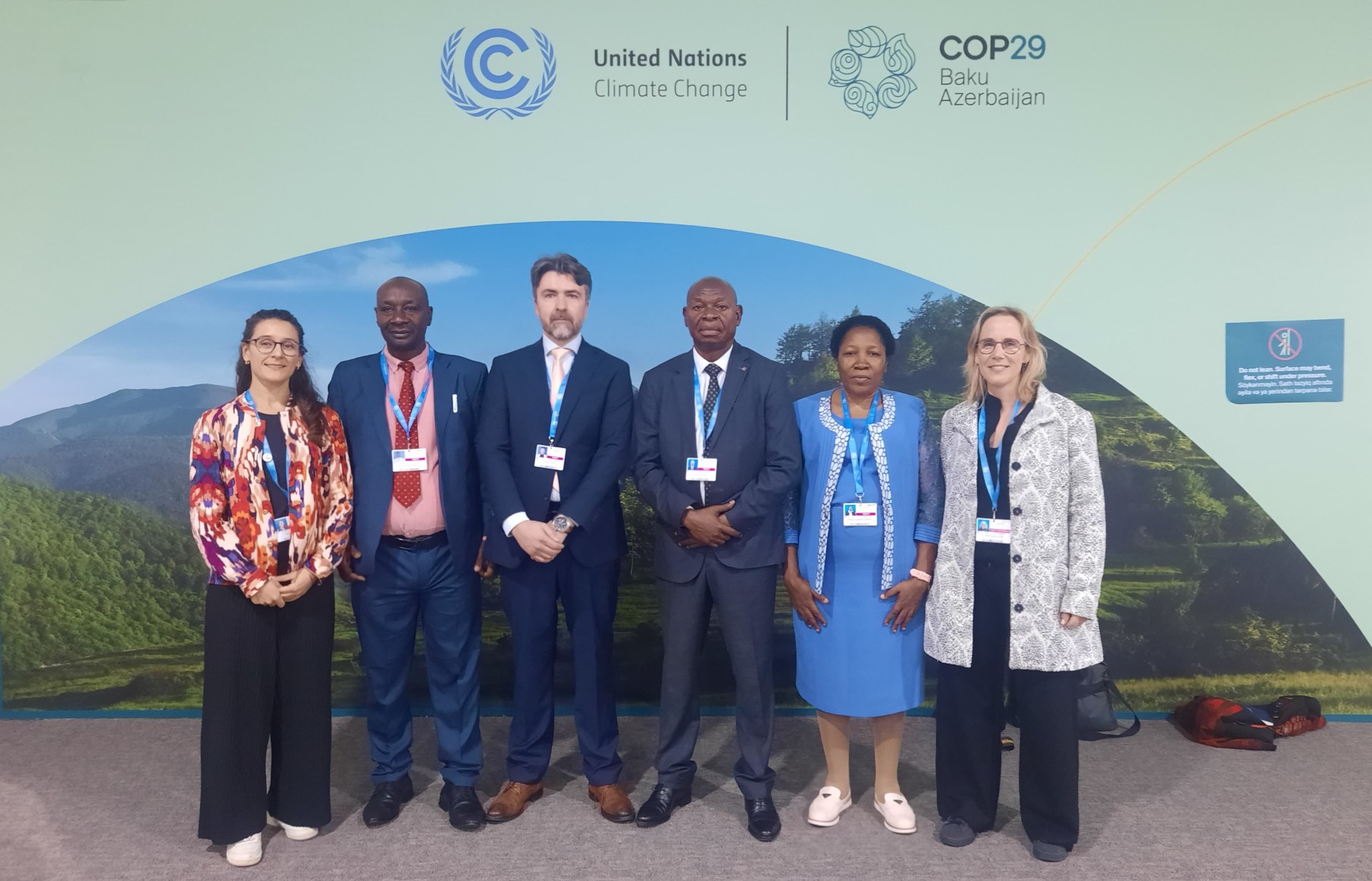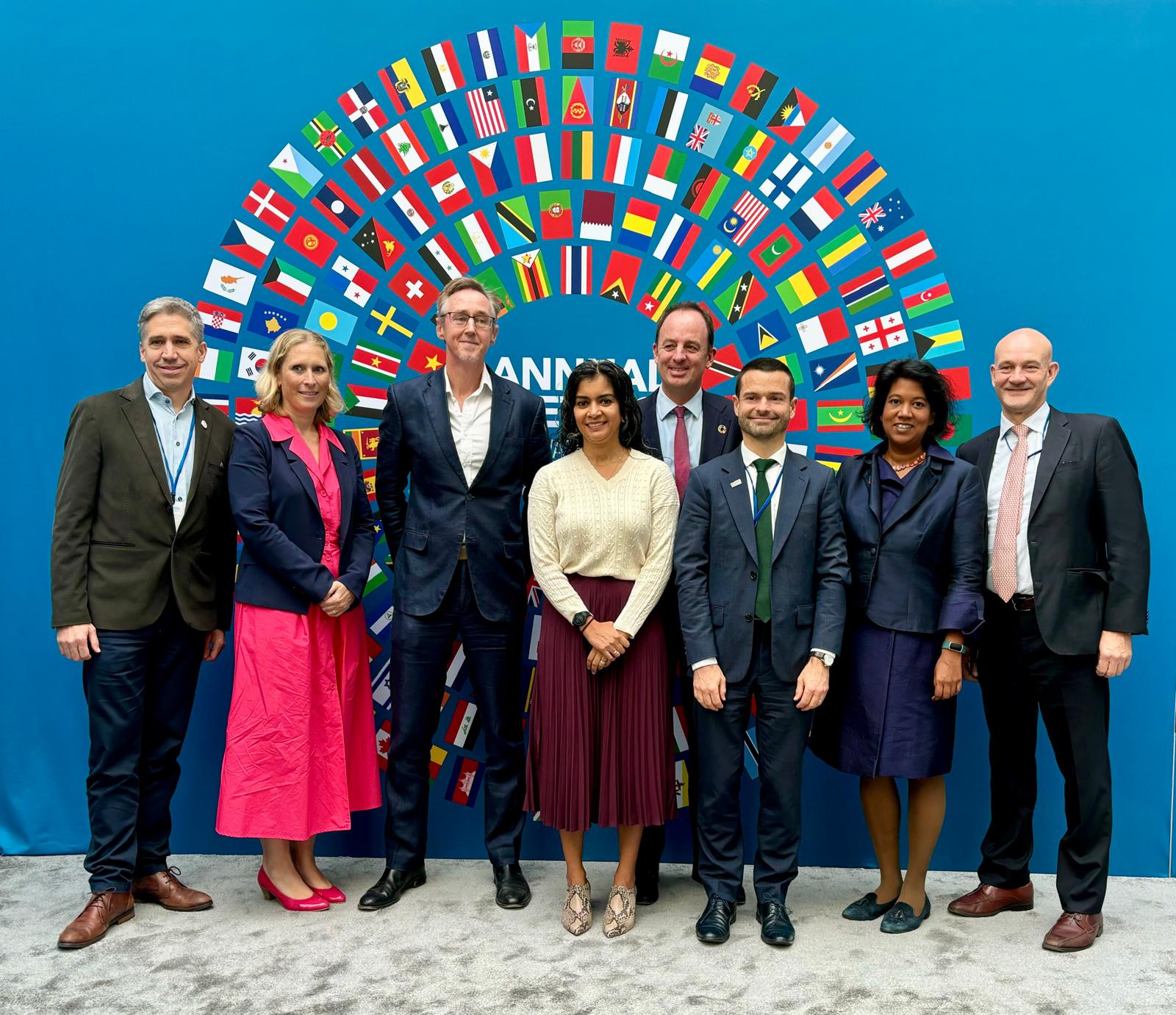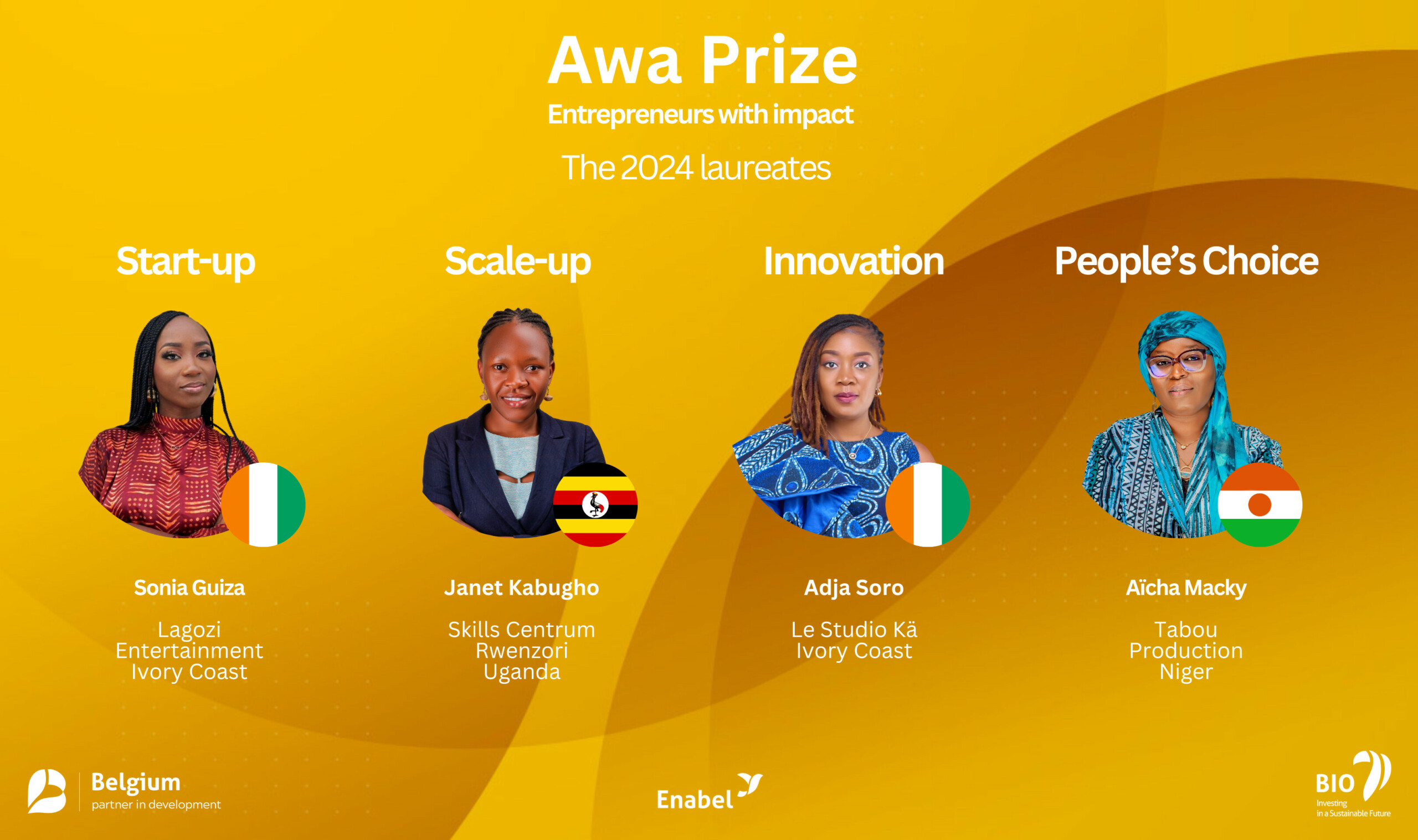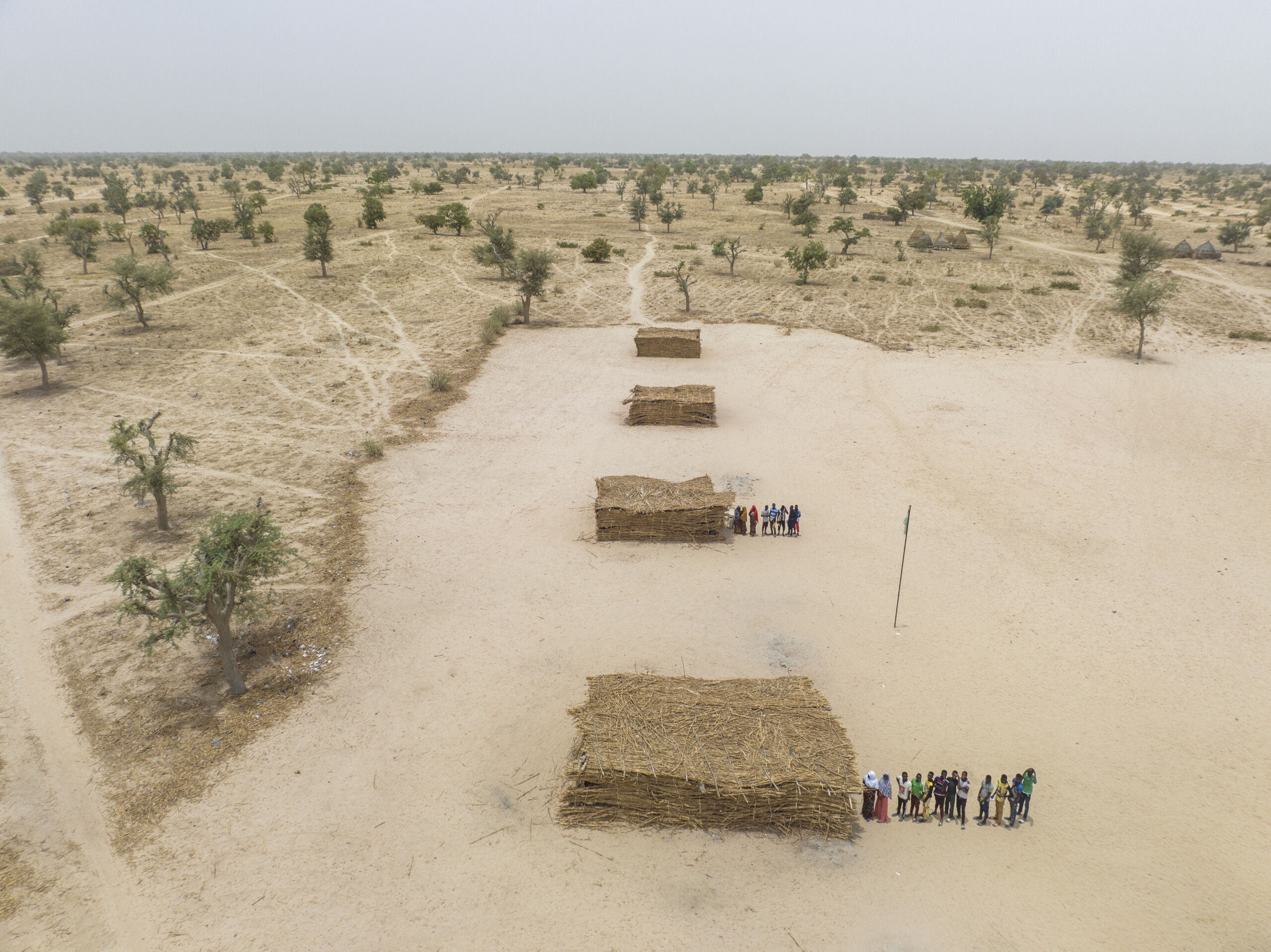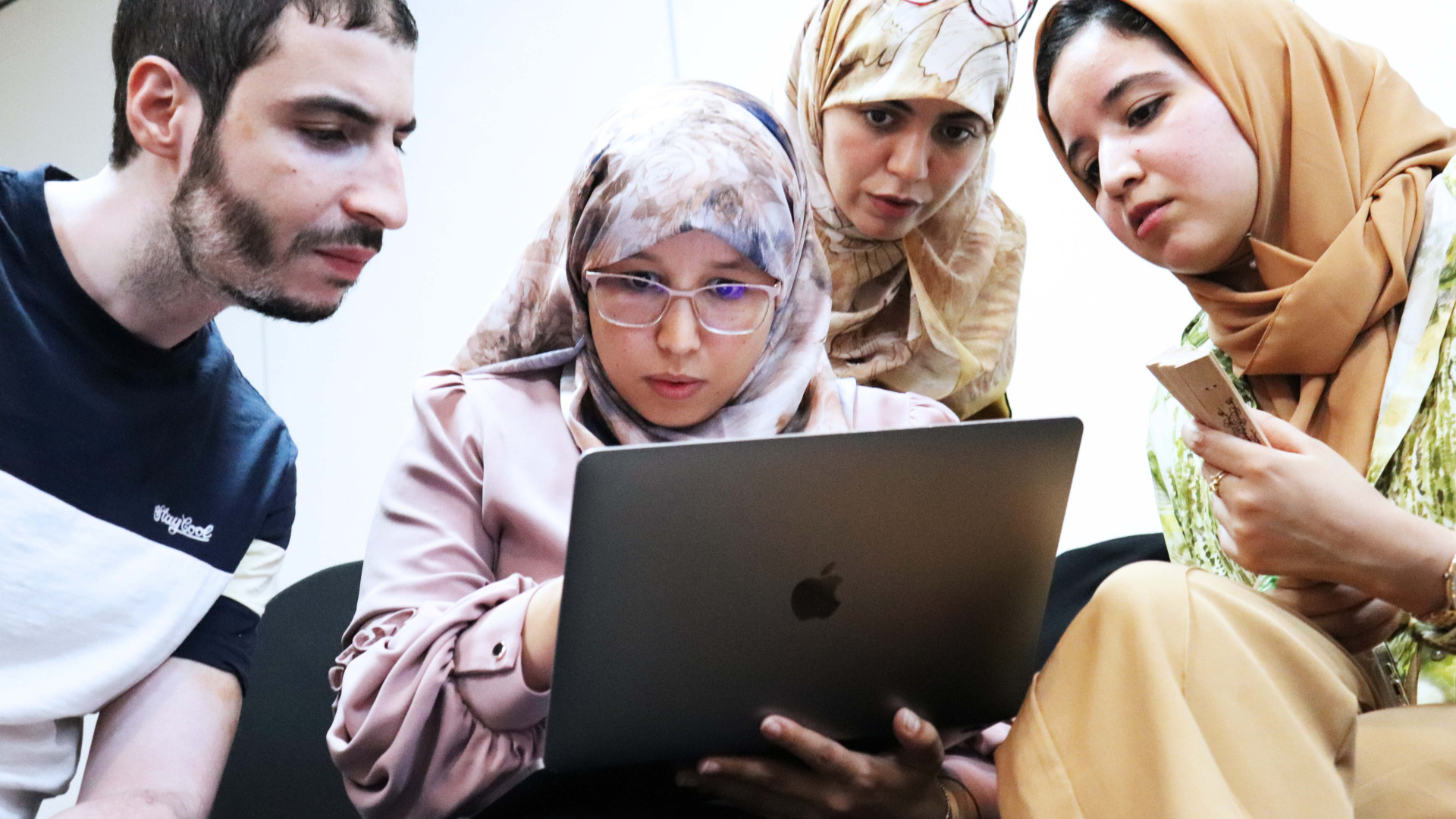The modernisation of Guinea’s civil registry inspired by Belgium’s experience
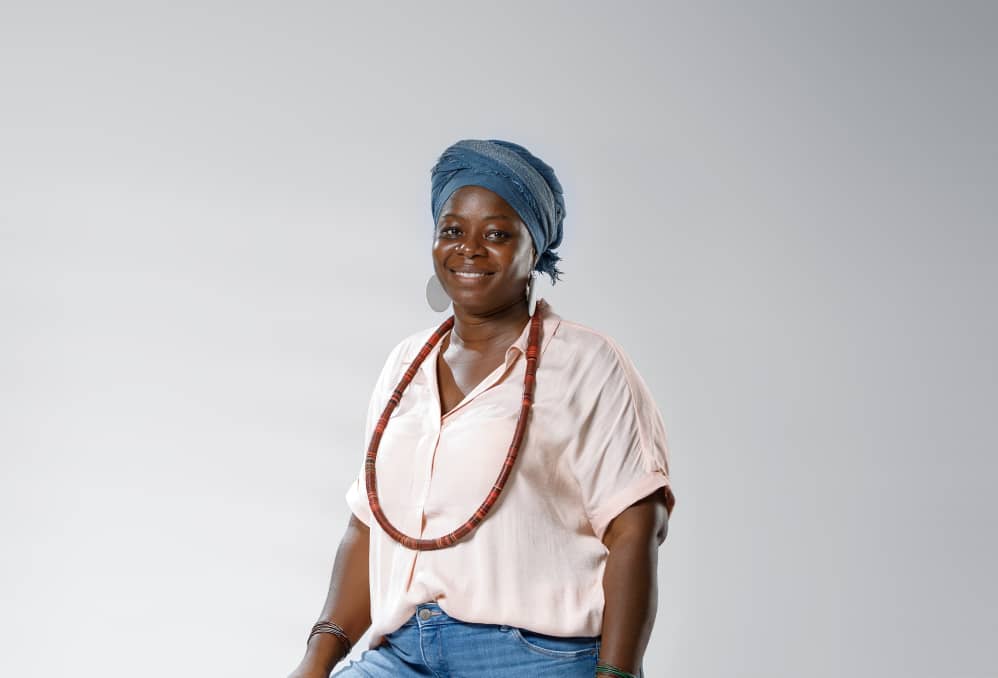
Guinea is a West African country with a population of almost 14 million (2023). It is eight times the size of Belgium. It is rich in natural resources and nicknamed the water tower of West Africa. An alarmingly high percentage of the Guinean population has no birth, marriage or death certificates. Official figures show that only 45-60% of Guineans have birth certificates and less than 2% of marriages and deaths are registered.
Enabel is helping Guinean authorities to modernise the civil registry via a pilot project in ten communes, funded by the European Union. Zoé Allado, the project manager, explains how Belgian expertise is being used to benefit this project in Guinea.
The situation in Guinea looks rather complicated. How do you explain this?
To start, there is the accessibility of the civil registry services. These are often located a long way from the villages. Also, registration procedures are tedious and citizens – often out of ignorance – only request civil status documents when they need them. Or they forge documents.
In Guinea, if a person has not declared a vital event within the deadline this must be regularised via courts of first instance. In 2022, 44,493 new vital events were recorded on time in the project’s ten pilot municipalities. In that same year, 66,562 people obtained civil registry certificates issued through a court procedure.
In addition, the low rate of registration of marriages and deaths is also a major problem in Guinea, with only 2% of the population holding marriage and death certificates. This makes it hard for citizens to exercise their fundamental rights and access social services and benefits such as education, health care, employment and land ownership.
Please tell us more about the Pilot project to modernise Guinea’s civil registry.
This pilot project aims to modernise the civil registry system and facilitate access to vital documents such as birth, marriage and death certificates. By working closely with institutional and private partners, we aim to ensure that the 14 million people of Guinea can fully enjoy their rights. The project drew heavily on best practice and lessons learned from countries such as Rwanda and Belgium.
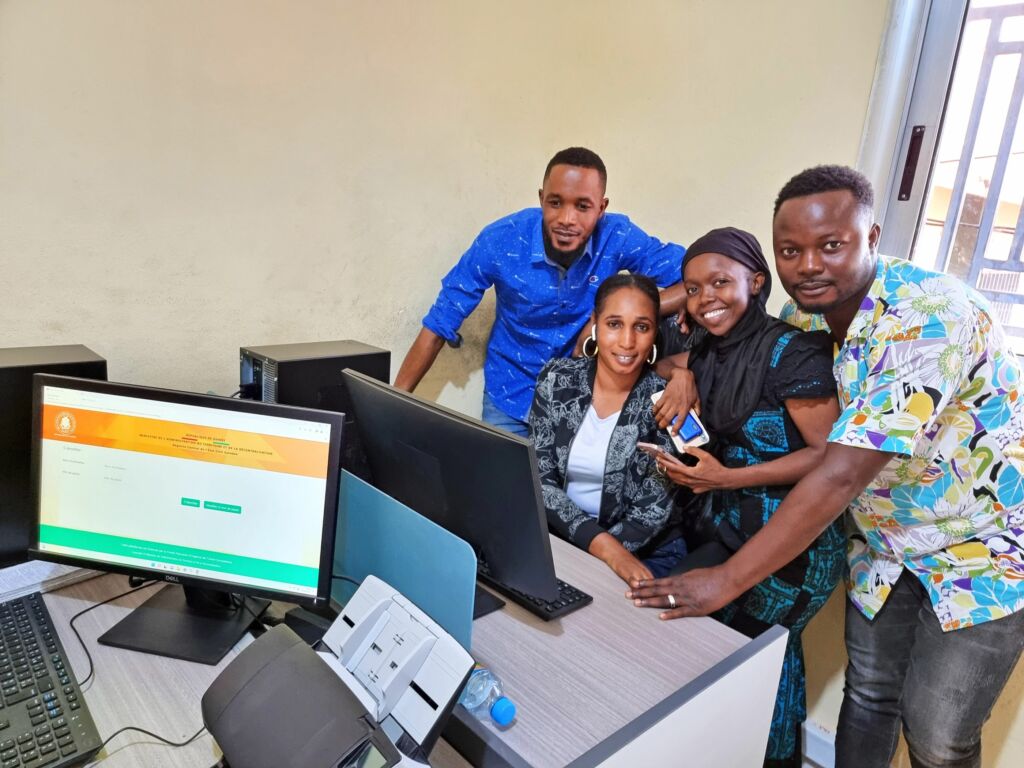
How is the project organised in practical terms?
We are working in close coordination with the Guinean authorities, in particular the Ministry of Territorial Administration and Decentralisation and with the ten pilot municipalities selected. In addition, the Ministry of Post and Telecommunications, the Ministry of Justice, the Ministry of Foreign Affairs in charge of Consulates and the Secretariat in charge of Religious Affairs as well as private partners play a key role.
There are three phases:
- Firstly, a digital national civil registry is set up in the ten pilot municipalities selected. Paper deeds are recorded at the municipal level and then entered into a national Guinean digital database. To date, more than 105,000 records have been migrated.
- Secondly, we are developing three application modules that are tailored to the needs of Guinea. During this phase, a Belgian team of technology experts from DXC Technology is working with local players to develop applications especially for Guinea. The aim is to enhance records security in the registry, to harmonise and facilitate the delivery of court decisions and to enable automatic notification of births via a mobile application, thereby reducing the notification time to a maximum of ten days.
- Thirdly, we aim to adapt Guinean laws and regulations in support of moving towards civil registry digitisation. To ensure legal harmonisation, with the involvement of the Belgian Federal Public Service Justice, discussions are underway with the parties concerned.
What public partners are involved in the project?
We mobilise the best expertise of reference through Belgium’s Administrative Simplification Agency (BOSA), the management committee of the Belgian Database of Civil Status Records (DABS/BAEC) and DXC Technology, the Belgian company that assisted the digitisation process of Belgium’s civil registry in 2019.
The partnership is collaborative and intense. Belgian teams visit Guinea every two months to work directly with local players. During these visits, we work together to elaborate the action plan and develop the tools needed to digitise the civil registry.
The decision to work with these partners was taken jointly by the Guinean government and the Belgian organisations involved. This choice was an acknowledgement of Belgium’s expertise and experience in the field of digitisation and it was based on the desire to provide practical solutions to existing problems in Guinea.
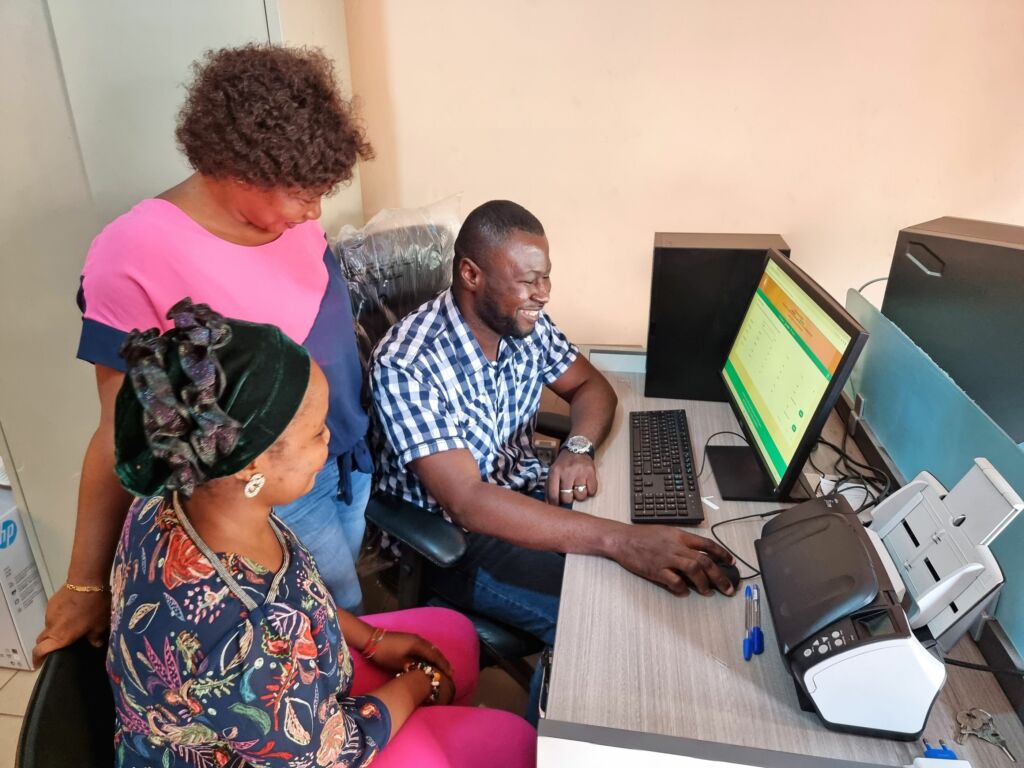
What challenges have you faced since the project started?
At present, the project emphasises awareness raising among the actors involved, such as civil registry officers, local elected representatives and institutional partners. It is essential to convince these stakeholders of the importance of the mission and to encourage them to adopt new practices, as the current system does not make it easy for citizens to access their rights in the matter.
Before embarking on an approach aimed at the general public, it is essential to consolidate the system and overcome the obstacles posed by the lack of qualified staff and remuneration for the many local authority actors. This preliminary stage is crucial to ensuring the reliability and integrity of the civil registry system, in preparation for its wider roll-out nationwide.
Last April, a study trip was organised. What was the purpose of this visit to Belgium?
The aim of the visit was to take back to Guinea in-depth knowledge of civil registry digitisation and to collect ideas on how to link the civil registry with health facilities and places of worship. But also to meet the members of the management committee of the Belgian Database of Civil Status Records (DABS/BAEC) and share experiences.
Several Belgian ministries as well as consulates of Guinea in Brussels and Paris were visited to discuss issues and explore digitisation opportunities and see how far Guinea could go forward in this politically sensitive domain.
What are the prospects for the project?
The project is currently in a demonstration phase to prove its effectiveness. The results achieved so far have convinced the European Union. An extension of the project is already envisaged to consolidate and secure registry on a larger scale.
